Text
Embracing Plan B: Finding Beauty in Life's Detours

Resilience in redirects
Life's journey often takes unexpected turns, sometimes leading us down paths we hadn't anticipated. When faced with disappointment, it's natural to feel disheartened. But despite setbacks, we press on, embracing life's challenges.
In my pursuit of my life's purpose, I've encountered both triumphs and trials. Through these experiences, I've come to understand that a 'No' doesn't diminish your worth; rather, it redirects you toward something better.
A setback doesn't signal the end of your aspirations; it may simply signify a detour or delay. Trust that every twist and turn serves a purpose, even if it's not immediately evident. Everything happens for a reason, and that reason is yet to be discovered. Years later, when you look back, it will all make sense why you had to go on a different path, why your plan had to be delayed, and why you had to go through all the obstacles you're experiencing now.
1. Plan B Is Much Better Than Plan A
Sometimes we think that the plan we have in our head is the best one. Yet, life shows us that there could be other, equally beautiful paths. The key is to remain open-minded and look for opportunities, especially in times of change, struggle, and emptiness.
When nothing is certain, anything is possible. Instead of dwelling on disappointment, shift your focus to what you can do next. Craft a new plan and look for opportunities that could arise on this new path.
You hold the power. The key is to know that you're unstoppable and possess unique values that others don't.
Tip: Next time your Plan A falls apart, take a moment to write down three possible 'Plan Bs'. This simple exercise opens your mind to new possibilities and starts a positive thought process towards adapting to change.
2. Your Characters Have to Be Built Before You Can Be Ready for the Prize
Often, it's the unexpected twists and turns that shape us the most. Like a river carving its way through rock, our struggles shape and mold us, revealing our true potential.
Your struggles are not setbacks; they're stepping stones. Each challenge is an opportunity to grow, to learn, and to become stronger. They're your greatest gifts, offering lessons that ease and comfort never could. In adversity, we find resilience. In challenges, we discover our strength. In pain, we find empathy.
We don't build mental strength, patience, acceptance, tolerance, flexibility, willpower - or anything mentally - overnight. We have to go through certain experiences and events repeatedly until those muscles are trained and become deeply embedded in our subconscious minds.
Your struggles are your character builder. They create your depth. They make you unique and unstoppable. One day, you'll look back at the struggles you've faced with a sense of gratitude. You'll see how they've led you to where you are, how they've shaped the person you've become. Without them, you wouldn't have reached the depths of your character or the heights of your achievements.
Tip: Create a 'Struggle Journal'. Every time you face a challenge, jot it down and reflect on what it taught you about resilience, patience, or empathy. Over time, you'll see a pattern of growth that you might have missed.
3. Blessings Are Hidden Along the Way
A lot of the time, rejections are blessings in disguise. Without disappointment, you wouldn't have embarked on a different path. Without it, you wouldn't have learned to let go of the life you planned to embrace the new life that awaits.
Blessings don't always come as wish-fulfillments but as richness in life experiences and connections with others. They often appear in the form of new relationships, unexpected opportunities, and deeper self-awareness.
Tip: Practice gratitude during setbacks. Every evening, list three things you’re grateful for, even on bad days. This habit helps in recognizing the blessings hidden in everyday challenges.
4. Embrace the Journey of Self-Discovery
Every detour in life is an opportunity for self-discovery. As you navigate through the uncharted territories of your Plan B, you embark on a journey of self-exploration. You learn more about your resilience, your adaptability, and your capacity for change.
This journey isn't just about reaching a destination; it's about discovering who you are along the way. It's about finding joy in the process and learning to appreciate each moment, even the challenging ones.
Tip: Set aside time each week for self-reflection. Ask yourself questions like, “What have I learned about myself recently?” or “How have my recent experiences changed my perspective?” Document these insights to track your personal growth journey.
5. The Power of Perspective
How we view our circumstances plays a crucial role in how we experience them. Viewing struggles as opportunities for growth transforms them from obstacles into stepping stones. This shift in perspective is powerful and can turn the most challenging situations into valuable life lessons.
Embracing a positive mindset doesn't mean ignoring the difficulties. It means acknowledging them and choosing to focus on the growth and possibilities they bring.
Tip: Whenever you face a problem, challenge yourself to list at least two positive outcomes or lessons from it. This reframing technique gradually shifts your perspective from seeing problems as obstacles to viewing them as opportunities.
Conclusion
In the end, life's unpredictability is not a hindrance but a gift. It pushes us out of our comfort zones, challenges us to grow, and leads us to discover paths we never knew existed. Your journey, with all its twists and turns, is a beautiful tapestry woven from your experiences, lessons, and growth.
Remember, life doesn't always go as planned, and that's not just okay; it's often exactly what we need.
1 note
·
View note
Text
How To Overcome Insecurity And Feel More Secure Within One's Self

With the world's complexities ever-present, it often feels like we're running on empty. However, no matter the challenges we face, it's our insecurities and self-doubt that truly sap our drive, courage, and perseverance. That nagging sense of not being good enough or worthy of our desires can freeze us in fear, preventing us from taking action and undermining our relationships and success. When we feel inadequate, our fears of failure, rejection, and abandonment kick in, triggering a subconscious response that leads us to retreat prematurely and envision worst-case scenarios, leaving us stuck in a cycle of fight or flight.
If you're reading this article, you must be aware of the power of your beliefs, the fleeting nature of your thoughts, and the connection between your thoughts, emotions, and actions.
What if you can learn to truly believe that you're good enough and stop judging and criticizing yourself? This article will provide you some guidance on how you can get rid of self-doubt and self-criticism so that you can live your life without being a prisoner of your own self-judgement. Get your pen and paper ready!
1. Write it all out.
Every now and then we may start feeling insecure and doubting ourselves. Writing our negative thoughts and fears down is the first step to recognize that this is something we’d like to work on.
Sometimes we may try to blank these thoughts and feelings out. But unless we pinpoint these and work through them, they will still be in our subconscious mind, secretly driving our actions.
So, what are some of the negative thoughts you have about yourself? They may not be present at all times. They may just pop up once in a while. But please write them down so that you can learn to understand them.
What are you insecure about? What do you fear?
In what way do you sometimes feel inadequate? In what way do you feel that you’re not enough? In what way do you sometimes feel inferior to others?
These questions might bring out some emotions. Please let them come out. We will work through this together and build a strong foundation together.
___
2. Understand where these doubts and insecurities come from.
Each of our patterns has its roots because we were born as blank canvases. Now let’s figure out how we started developing these.
2.1) Was there any events in the past that created these insecurities and doubts within you?
We don't all start developing negative thoughts about ourselves and having insecurities on our own out of the blue. We started conceiving these ideas, perceptions, or judgements about ourselves through an event or multiple events in life - events that were painful.
Maybe you had to work so hard in your childhood in order to gain love and approval from parents. But no matter how hard you tried, you were still told that you're not good enough.
Maybe someone said that you were stupid when you failed a test at school.
Maybe you've been bullied.
Maybe someone said you were ugly or incapable.
Even if someone said something to you unintentionally, it doesn't matter. What matters is that someone said something to you or did something to you years ago and it's still stuck in your subconscious mind and makes you feel like you're not good enough.
The more important the person who said those negative things to you was, the more painful the experience must have been for you, and the bigger and deeper the wound is.
Please take a few minutes to think deeply about this. Look into your past. Who were you surrounded by whilst growing up? What kind of environment did you grow up in? What negative experiences did you go through that caused you to have this limiting belief?
2.2) Who said what?
Who?
What did they say?
When did they say this?
Why did they say so? What’s the context?
2.3) What happened?
Describe the experience that caused you pain.
What belief or insecurity did you adopt as a result of having gone through this experience?
2.4) How have those words and experiences been affecting the way you live your life? How have they been limiting you or motivating you?
2.5) The person that criticized you, what insecurities do they have? What beliefs do they hold about themselves?
What insecurities do they have? What beliefs do they hold about themselves?
What beliefs do they hold about others and the world?
How did their beliefs and insecurities affect yours? How much of your beliefs and insecurities are influenced by theirs?
What are their fears? Beneath insecurities, there are fears.
How do you think they project their fears and insecurities onto you and others?
Oftentimes, we can't change people. But we can change the way we receive, interpret, and process what's being said to us.
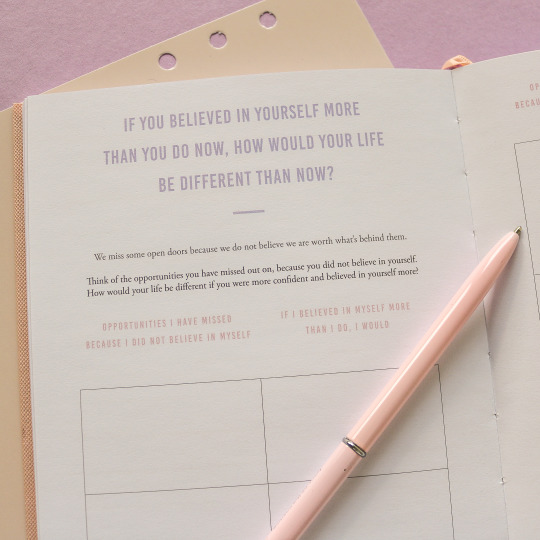
3. Learn to forgive and let go
How can you forgive that person for the experience?
There are three things you can do:
Firstly, understand that people project their beliefs and insecurities onto others especially those closest to them. They judge others based on their own limiting beliefs and perceptions they have about themselves and lives. What someone points out to make you feel insecure is actually what they feel insecure about within themselves.
Secondly, try to understand their circumstances and where they came from. How come they believe what they believe? What was their upbringing? What were their circumstances in life? What beliefs were they brought up in? What fears do they have and did their parents have? Put yourself in their shoes and be compassionate with them, understanding why they are the way they are.
Thirdly, focus on what you have learned and how you have grown from it. You wouldn't have gained the wisdom and strength without having gone through such event. So that's something you can be thankful for.
How can you forgive that person for what they said to you?
How can you let go of those words? It's been years. Why are you still holding onto them and let those words affect your life until today? That person probably forgot they ever said those words to you. Write those words into a piece of paper and throw it into the bin or burn it. Let it go.
___
4. Form new perceptions about yourself. Change your beliefs around what's important to make one worthy.
In order to start feeling more secure, you must change your beliefs around what makes one good enough.
Does having a double degree make one good enough? Does having a certain amount of money in one's bank account make one good enough? How did you come up with these benchmarks? Who told you these beliefs are true? You need to re-define your definition of success and happiness in your own terms. Forget what you were taught to believe.
Firstly, focus on building positive thoughts about yourself. What are your good traits? What are your strengths? What do your friends love about you? What do you love about yourself?
Secondly, try to improve yourself where you can so that you can feel more secure. What are you currently not happy with in life or don't like about yourself? Can you improve? While trying to improve yourself, focus on how proud you feel with your progress. Keep the positive self-perception going!
Thirdly, redefine your definition of a happy life. If you were completely secure within yourself, what would your life look like? What would you do? What would your happiest self look like - the self where you don't have any fear holding you back or sabotaging your relationships and success? Describe this version of yourself that you desire to be - emotionally, physically, mentally, and spiritually.
Now is the time to focus on becoming this happy and secure version of you. Leave the past in the past. Focus on forming new perceptions about yourself and removing judgements based on other people's limiting beliefs. Read books that reinforce positive self-perception.
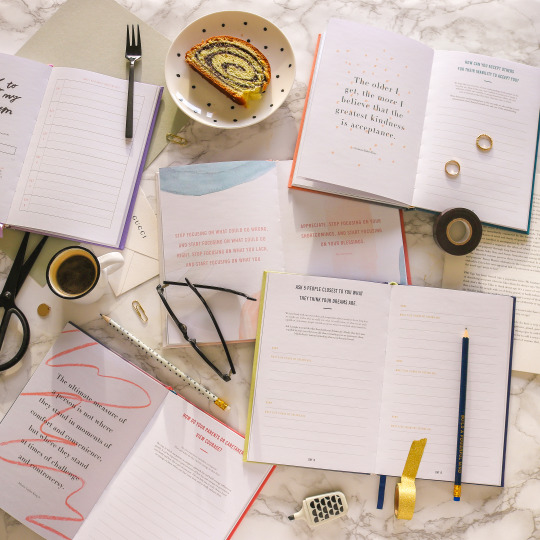
5. Avoid putting yourself in situations or surrounding yourself with people who make you feel even more insecure.
Your insecurities will keep popping up every now and then. As you work through this, try to avoid putting yourself in situations or surrounding yourself with people who make you feel even worse - whether it's because they also have the same negative perceptions about themselves, or, they are overly competitive and put you down.
___
6. Surround yourself with people who are secure within themselves; who uplift your spirit as well as theirs.
Energies, mindsets, and attitudes are contagious. The same goes with security and insecurity. When one person in a relationship feels insecure, it makes the other person feel insecure, and vice versa. Therefore, it's impossible to not have self-doubt if your friends have self-doubt. It's impossible to not feel motivated and inspired when you're surrounded by people who are secure within themselves and focus on their goals without doubts and fears.
Sometimes by surrounding ourselves with the right people (energy), it's enough to make us start trusting in ourselves, feeling that we're good enough, worthy enough, and capable enough.
We are the average of the 5 people we're closest to, so choose wisely. Overtime, our feelings, beliefs, and perceptions will be shaped by our environment.

If this is what you are working on, check out our Self-Esteem and Self-Acceptance journal. They are designed to help you understand yourself better and improve in this area.
#selfdoubt#insecurity#selfdevelopment#selflove#selfacceptance#happinessplanner#journaling#therapy#therapist
2 notes
·
View notes
Text
How To Be Better at Love
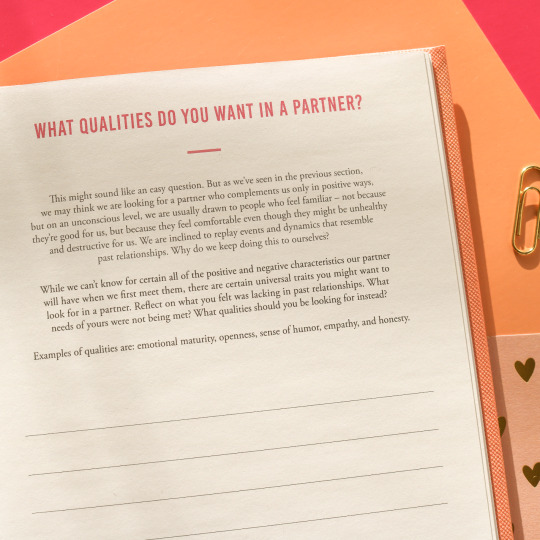
Whether you’re in a relationship, single, or in a complicated situation, I think we can all agree that working on our relationship is really working on ourselves.
There’s no other place as intimately challenging as being in a relationship. A relationship is where can heal all of our intimacy, commitment, and abandonment wounds and fears - if we allow ourselves to confront our deepest fears and greatest vulnerabilities. Many of us choose to run. But there comes a point when we’re mature enough to realize that running away doesn’t make anything better. Running away might seem like the right thing to do in the moment, but it doesn’t make us feel fulfilled. We still feel hollow because we run away from our deepest need - our need to be loved.
But we all have our hearts to protect. Is this person going to let me in if I let them in? How do I know they are not going to leave if I let them in and know the true me? Will they love me for who I really am? Will they accept my flaws?
Past stories keep repeating in our head. Fears and insecurities arise, not just from previous relationships but also from our upbringing - how we received love from parents.
Here are what I believe we should all do to be better at love.
1. Understand yourself. How did you receive love as a child?
The fear we fear happening to us in our romantic relationship is often the result of how we were treated and loved as children. This is subconscious. Most of us don’t realize why we keep repeating this pattern. We repeat the pattern because it’s familiar. But just because something is familiar, it doesn’t mean that it’s good for us.
An example:
If your mother was tough and strict on you - you had to get good grades at school and succeed in career in order for her to show love, affection, and pride in having you as her child - you naturally would subconsciously be drawn to people who appreciate and admire you for your success. And if you feel like you’re not doing well, you may withdraw from them because when you were little, your mother did not show you strong affection unless you did well at school. You had to earn her love through your success. You are repeating the same pattern in your romantic relationships.
Another example:
If you had a father who was physically and emotionally absent because he was busy with work, you may grow up feeling that that behavior from a man is acceptable. So you may subconsciously be drawn to men who are physically and emotionally absent, but provide financial stability for you like your father did. You might repeat this pattern until you start doing some inner work and realize that this pattern of dating has not made you fulfilled and that you need to be with a man who can be physically and emotionally present with you.
No relationship is perfect since no one is perfect. Neither are our parents. But as we get older, we can acknowledge what we want for our children. And if we want our children to grow up in a healthy, loving home, we must, first and foremost, heal our wounds.
__
2. Understand yourself. Who are you?
Understanding yourself is the first step to having a successful relationship. Understanding who you are helps you weed out people who would not be compatible with you.
While differences create opportunities for learning, vast differences can create annoyance, conflicts, misunderstandings, miscommunications, and disagreements. All of these could lead to unhappiness. When the honeymoon phase ends, who wants to compromise? By understanding yourself better, you avoid wasting time and energy with people who are not a great fit.
Do you understand your own lifestyle? How do you like to spend your time? What are your habits?
What are your likes and dislikes? What are your pet peeves and red flags?
How do you view the world? Are you liberal or conservative? Are you religious?
What are your core values? Do you share the same moral standard?
__
3. Understand yourself. What are your goals?
One top reason I see people with compatible personality traits and lifestyles break up after a few years together is having different life goals.
Do you know what you want out of life? Sometimes our goals change as we get older. That’s why it is wise to get married when you know for sure who you really are and what you want out of life. But even then, your goals may still change and your partner’s goals might not align with yours anymore.
What are your life goals? Do you want to have children? Do you want to live in a big city or in a suburb? Where do you want to live? Do you want the same things in life?
“Loving is not just looking at each other, it’s looking in the same direction.”
– Antoine de Saint-Exupéry

4. Understand yourself. What do you want in a romantic partner?
Do you know what you want in a romantic partner?
What qualities do you want in a partner?
What traits do you admire?
Here’s the catch:
Sometimes the traits we admire in others are the traits we have & love about ourselves, or, the traits we want to have but don’t have as much of yet.
Once we shift the focus from finding these traits in a partner to growing this trait within ourselves, our need to find it in a partner will diminish. It diminishes because we have fulfilled it within ourselves. There is no need to find it elsewhere.
If you know yourself well enough, you’d know what traits you lack. These traits you lack can exist in a partner who can come in to complement you. However, these exact same complementary traits can also annoy you in some way.
Here are some examples:
If you’re a very organized and systematic person, you might find that a partner who is flexible and spontaneous helps you loosen up and find more joy in life. At the same time, their flexibility and spontaneity might also annoy you from time to time.
If you’re quite wishy-washy and live in the moment, you might find stability from being with someone plans ahead and is more grounded. At the same time, conflicts might arise as you might be annoyed with their planning-ahead mantra. They might be annoyed with your inability to plan and stick to plans.
If you’re logical, you might like how an emotional partner helps you get in touch with your emotional self. However, sometimes you might find them too sensitive and take things too personally when you’re just being blunt or direct. This could create misunderstandings and require you both to work out the differences in communication.
If you want to date someone who is strong and dominant, you have to realize that they would always want to take the lead and would not be happy if you take the lead in relationships which include earning more or making more important decisions.
If you want a more passive, sensitive partner who lets you take the lead in relationships, you have to realize that they would not be that dominant man who argues with someone for you or treats you like a little princess.
A person who is very empathetic and sensitive would naturally always put other people’s needs before themselves. While this is a good trait, it could be negative because they don’t prioritize their own needs.
Every strength comes with its weakness. That same weakness can be seen as a strength. It depends on how you look at it. Nonetheless, both cannot exist in the same person with the same level of intensity. One will always be stronger than the other. So you have to decide what you want, what makes you happiest, and what weakness you can accept.
_________________
5. Communicate Better
One of the downfalls I see in many relationships comes down to communication.
A) Miscommunication
I believe that as we get older, we all must get better at communicating. I know I am now a lot more expressive verbally than I was when I was younger. People are not mind readers. The only way to communicate how we feel and what we want is by verbalizing it. But there’s an art to it - which leads to the next point.
B) Ways of communication
We should express how we feel and how a situation or someone’s action makes us feel. However, no one likes to feel criticized or blamed. From my research, study, and observation of successful couples, people who are able to sustain happy long-term relationships know how to communicate. They do not yell or scold at their partner when angry. They do not rage. They do not swear. They do not stonewall.
One common scenario is this:
You tell your partner how a situation or their action makes you feel. But they get defensive! When someone is defensive, they stop listening to you and hear what you have to say. So you don’t feel listened to. Your needs don’t get met. This might become an unhealthy pattern in a relationship.
People who win in relationships know how to communicate their needs in a way that does not make their partners feel criticized or blamed. This is an art we all need to master. Several dating books provide great advice on this.
Also, there are couples who both like to yell and scold at one another when angry. And it works out for them. And if you look at how they’re brought up, you probably see that they both grew up in similar kinds of households where parents communicated that way. So they are used to and subconsciously adopted that way of communication.
The problem arises when two people have different ways of communicating.
One person might want to take quiet space and withdraw; the other person might want to talk it out right away.
One person might grow up with parents who communicate calmly and have learned to communicate calmly. The other person might grow up with a parent who is verbally abusive. Therefore, they either adopt that same way of communication (as a way to respond to that said parent), or, they might become the opposite which is shy and withdraw.
Understanding your partner’s preferred way of communication help eliminate misunderstandings. When you understand how your partner copes with distress emotions, you can give them what they need. If your partner needs space, you can learn to give space. If your partner needs more communication after an argument, you can learn to be more verbal and not withdraw.
Changing how we like to communicate and dealing with our distress emotions is not easy. But a relationship can only be successful if both partners learn each other’s way of communication and adapt. It will get easier over time.
Tip:
If you find it hard to give your partner space as you are the type who needs to “talk it out” after an argument but don’t want to overwhelm your partner who needs some time alone to process things, create “Voice Notes” on the Happiness Planner app. Talk it out as much as you can on there. When your partner is ready, you can listen back to your voice notes, so that you know what exactly you felt like saying in the heat of the moment. Oftentimes, you will find that once you calm down, you no longer want to say what you thought you wanted to say when you’re upset/angry/frustrated. This Voice Notes feature can save you from having regrets over the things you say. So many relationships fall apart because of the mean things people say when they’re angry.

6. Have more empathy & kindness
This one doesn’t need much further explanation. A relationship can only last if both people care about one another and are kind and generous with one another.
When people are not empathetic and are not kind, it is often a shield. They created this shield since they’re little to protect themselves from the cruel world, from the narcissistic parents, or from the people who abandoned and hurt them over and over. Unfortunately, sometimes the person doesn’t want to break that shied. And there’s really nothing we can do if the person is not ready and is not willing to work through their intimacy issues.
__
May you all find the love you seek. And if you still struggle with feeling worthy of love, you must first focus on your own self-love and self-acceptance. One day, you will find someone who accepts your flaws and quirks just the way you do.
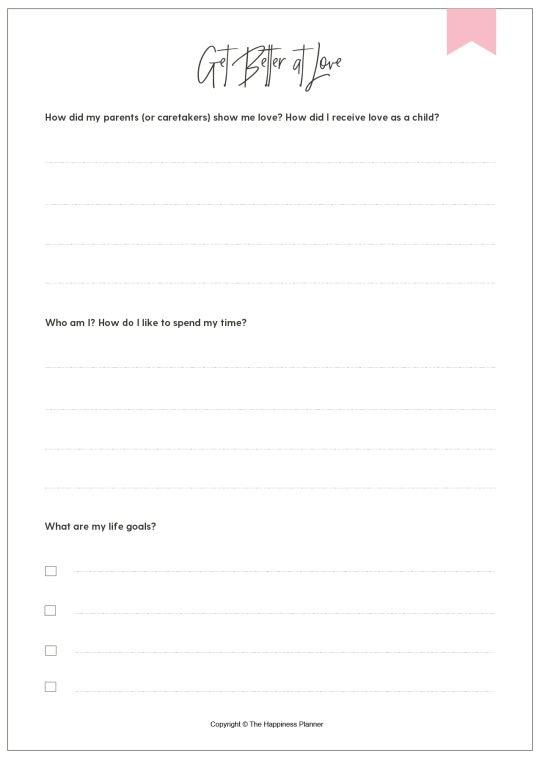
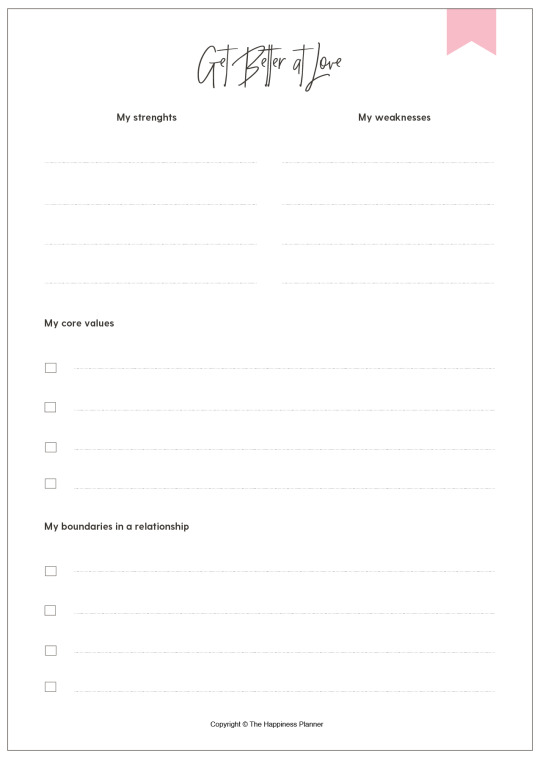
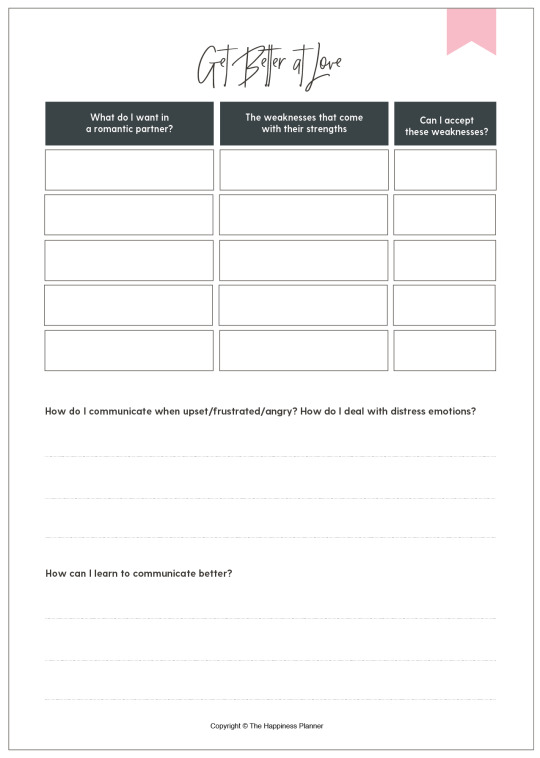
Click here to download the printables
Check out our Valentine's Day Collection
#valentine's day#dating advice#dating tips#relationship#relationship advice#happiness planner#mo seetubtim#featured
10 notes
·
View notes
Text
Tackling Imposter Syndrome & Relationship Anxieties | Self-Acceptance

Do you experience imposter syndrome? Do you find yourself comparing to others and feel that you're not good enough?
Do you sometimes find that you have relationship anxieties? Do you find it hard to open up and let someone in?
All of these come down to your ability to accept yourself. And the catch is: you can never fully accept yourself until you heal that wound with your parents around acceptance.
When you heal acceptance issues with your parents - whether to heal or to forgive - that’s when you will finally feel truly at peace with yourself; that's when you will stop experiencing imposter syndrome; that’s when you will attract true love - the kind of love that accepts you for who you truly are because you have learned to accept yourself.
Personally, I dealt with this issue growing up - the issue of feeling like “I’m never good enough for my parent” no matter how hard I try. I also grew up with many high achievers who had the same issue growing up (surprise!). Twenty years later, the struggle still remains deep down inside for many of us. We work so hard trying to be successful - for what? For parents’ approval? Which, to be honest, they’re probably too old to care now. However, the expectations they placed on us when we were little put a permanent scar on our sense of self-worth and it continues to affect us throughout our lives. It drives us to succeed (thank you). But at the same time, it also takes away our ability to fully accept and love ourselves for simply just being.
We continuously experience bounces of imposter syndrome because we haven't made peace with our shadow; because we haven't made peace with the fact that we're not perfect and we will never be - and it is all totally okay. We don't need to be successful to be loved. We don't need to be admired to be happy. We don't need to have our self-worth and self-esteem validated by the number of followers we have or the number of speaking gigs we get. We just need to accept ourselves for simply just being. But why is it so hard to be happy with our true selves? Why is it so hard to be happy for just being? Why?
If you’re more reflective, you might recognize that this scar doesn’t just affect you professionally but also romantically. Because you never felt fully accepted by your parents for simply being you, it is almost impossible for you to feel that you can be fully accepted in a romantic relationship for simply being you. You continue to prove that you are worthy of love by proving to your partner the way you had to prove yourself to your parents as a child. By holding onto this feeling, you never completely let your guard down with anyone. You always hold back. And you may never understand why it is so hard for you to be vulnerable and just let yourself be loved. And when you do, oftentimes you end up falling in love with someone with the same trauma.
But you can never find true love until you start accepting yourself - fully - regardless of your parents’ expectations.
You can never feel truly secure no matter what amazing relationship you get into until you fully accept yourself.
You can never feel truly happy no matter how much you achieve until you heal this issue around acceptance with your parents. So how can you learn to accept yourself fully when you can’t reverse the past? How can we make peace with the expectations our parents placed on us?
1. Understand that the expectations our parents placed on us are based on “their” insecurities.
What does this mean? It means: they believe that if you reach the expectations they set for you, “they” will “feel more secure” about life.
I said, “they”, not you.
They’re projecting their insecurities onto you and want you to adopt those as yours.
Don’t get me wrong. They love you and they want the best for you. These are all done unconsciously. Why? Quite frankly, it’s human nature. And quite frankly, they probably haven’t done any inner work.
When you haven’t done inner work, you continue to project your insecurities onto those around you and those you love (although with good intention - or so they say).
What you project on the outside is a reflection of the inside. What you project on others is either what you have, or, lack & desire within yourself.
Those expectations are there to say “you are not whole until you reach those expectations.” It’s indicating that something is lacking in you. And what’s lacking in you is insecurities - insecurities which your parents believe will go away once they (and now you) achieve certain goals. Whether that’s professional success, financial success, power, recognition, or approval, it’s telling you something about their stories - their upbringing, their struggles, and the expectations their parents (your grandparents) placed on them.
By understanding this, we can learn to look at those expectations objectively without making their insecurities our insecurities. Insecurities don’t need to be passed on from one generation to the next. And it takes one generation to recognize and change.
2. Be compassionate with our parents with their struggles
It might feel like this is not their struggle, but our struggle. But to truly feel at peace with our struggle, we need to recognize that the originator of our struggle also struggled. When you’re happy and secure within yourself, you don’t try to grab and hold on tightly to others. Your parents did so because they didn’t feel that happy and secure with their lives. Therefore, they tried to grab and hold onto you. You were their chance of happiness and a sense of security. I say ��security’ instead of ‘success’ because when we chase after success, what we’re really chasing is the feeling of security.
3. Accept them the way they are so that they can accept you the way you are.
When you were little, it was all about being accepted by them. But now the roles are reversed. You can learn to repair this bond by accepting them for the way they are including their insecurities and being able to look at the expectations they place on you objectively without getting worked up emotionally. In return, they will start accepting you the way you are. But it starts with removing conflicts and reactivity that surround the cord between the two of you and replace them with understanding, calm communication, and full acceptance.
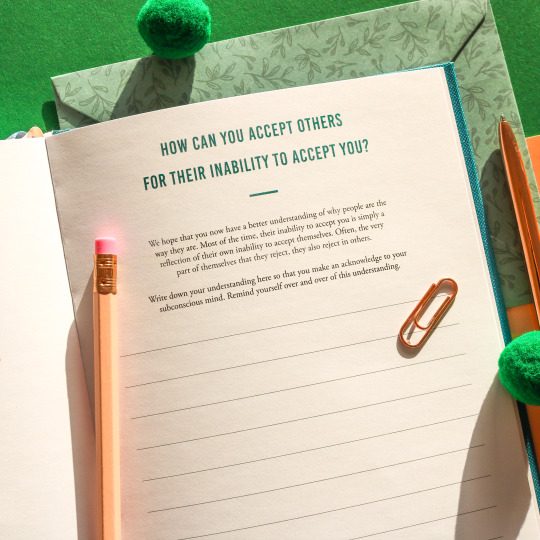
All of these require practice and patience. After all, time might be the biggest healer of all wounds - not because time makes you forget things, but because people change with time. Priorities change with time. Time makes us realize what’s important and what isn’t - at the end of the day. The love between you and your parents is the only thing that is real, secure, and everlasting. Everything else in life is fleeting especially the things that make you feel validated and secure from the outside. Emotional security through self-acceptance is the only thing that will make you feel truly happy and whole.
I hope you use this time in solitude to reflect on what's still holding you back from fully accepting yourself because the root cause of your anxiety issues might actually lie in this.
Shop: Acceptance Journal (paper) | Download: Acceptance Journal (PDF)
#self-acceptance#self-love#abandonment issues#healing#mother's day#mother's love#acceptance#imposter syndrome#featured
19 notes
·
View notes
Text
Making A Decision When You’re At A Crossroads

Have you ever been at a crossroads in life where you have to make a decision but you feel stuck? You keep changing your mind back and forth on your options. Whether it be job, relationship, or relocation - it’s never easy to weigh between your options and pick just one when all seem like good options.
I have been at crossroads myself. Sometimes I feel that it might have been easier to be told what to do and to have to follow a certain path like some friends because the paradox of choice is real.
But no matter how confusing making a big decision might be sometimes, I've learned that in the end, you will always find your answer. Your answer might not come to you at the moment. It may take months or years. No matter how much you force it to come, it will not come to you. You will arrive to your answer when you’re ready. You will find the opportunities you seek when you’re ready. You will find the person of your dreams when you’re ready. You will take a leap of faith and believe in yourself when you’re tired of the old path and are ready for the new path.
We will never be fully ready and equipped with all the skills necessary to do what we want to do and to succeed in the new journey we’re about to embark on because that’s a part of the journey - you learn, grow, and gain new skills on your journey. But at some point, you will feel ready to make changes, to jump, to take a leap of faith, and to expand your horizon once again.
So if you’re trying to make a decision right now - no matter what it is - career change, cities to move to, staying in or leaving your relationship - let’s lay it all out and gain some clarity!
1) Create a timetable with all of your options and the factors that are important to you.
For me, I’ve been trying to decide where I want to move to and live in permanently. I have been changing my mind a hundred times now. I just did this exercise and now it’s clear to me where I should move to.
Here’s an example from my own real dilemma!

As you list all of the factors that are important to you down, you might realize that some of the things that you thought were important might not be that important enough for you to want to give them scores.
For example,
I always thought of healthcare in the US as a con in my decision making. However, when I evaluated all of my options, I didn’t even want to add healthcare there because I could count the number of times I’ve been to the doctor with one hand.
I thought the cost and quality of education would be a factor especially because I want to have kids soon, but it's not important enough for me to want to give a score here.
I thought safety and the homelessness situation would be a factor but it’s not important enough to make it to the list.
By writing everything out and giving them scores, you gain clarity not only on which option is the best for you but also what factors are most important to you.
Clearly the ones that come to mind first or the ones you list first (left columns) are most important.
2) Give all of them a score
Give all of them a score from 1-10 with 10 being the strongest. This should be pretty easy. Don’t overthink it. Follow your intuition. Whatever comes to mind, just put that number down.
3) Add all of the scores up.
London = 64
Los Angeles = 57
San Francisco = 54
Paris = 61
For my dilemma, the clear winner is London.
Now I’d like to help you by giving examples for other scenarios.
If you’re considering changing your career, here’s an example:

If you’re considering leaving your relationship, you have to do pros vs cons.
Add up the scores for both pros and cons
Pros - Cons = Scores for each path
Below is an example. Please take my sample factors at face value. You know what’s important to you. These are just my example but I hope they can provide guidance.


I hope these can help you make your decision as I did with mine.
2 notes
·
View notes
Text
What Are You Grateful For Lacking?
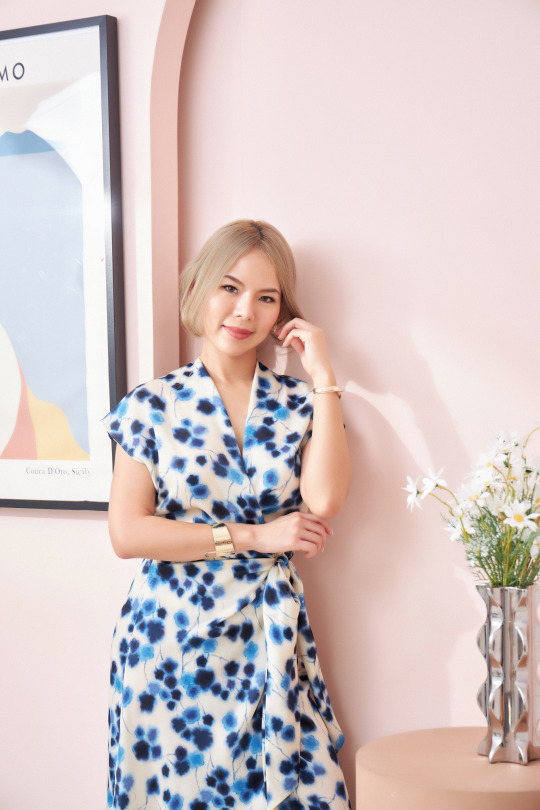
It was my 35th birthday yesterday and I thought about what I was grateful for.
When I made the list, surprisingly, I wasn’t focusing on what I have. Instead, I focused on what I lack: I’m grateful for the lack of many things in my life.
A friend made a great point that we often think about what we’re grateful for in terms of what we’re grateful for having. But what are we grateful for lacking? The lack of something can be wonderful but we often forget to pay attention to and be appreciate what we don’t have.
For example, this year, I am truly grateful for my parents’ lack of diseases and illnesses.
I am grateful for not having any sickness and for not having any wrinkles yet. 😆
I am grateful for the lack of drama or arguments in my life right now. I am grateful for the lack of jealousy and envy within my friendship group. I am grateful for the lack of dishonesty. I am grateful for the lack of personal debts.
What about you? What are you grateful for not having? What are you glad you lack?
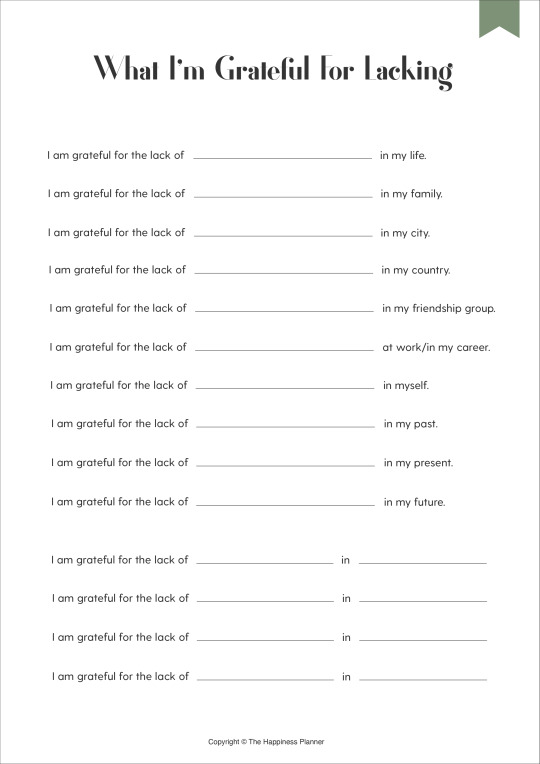
What do you want to continue lacking?
Why are you grateful for these lacks?
How are these lacks important for your being and your soul?
What consequences do these lacks create?
. . .
Not all lacks are bad.
Lacks create space.
Sometimes space is all we need.
It’s all about perspective in the end.

4 notes
·
View notes
Text
Conversations with Parents | A Lesson in Communication Styles

After a long-winded conversation with my friends on Saturday about different personality traits - not only in terms of dating but also within family dynamics, I was reminded of this fact again after having long-winded conversations with my parents (separately as they are divorced).
Sometimes a conversation with parents has a way of making a detour to visit issues, conflicts, and misunderstandings that happened during childhood. The discussion started off light-hearted but somehow ended with me (or maybe both of us) having to close our phones or else we would just keep filling our heads with thoughts that stir up unpleasant feelings.
Then I was reminded again that this is not how to communicate with my mother. I cannot communicate with my mother who is emotionally driven like how I would communicate with my father who is logically driven. Suddenly, I shifted the way I communicated and I received the response I wanted from my mother.
When communicating with my dad who is driven by logic, I have to use facts, reasons, and numbers to prove my point and get his support. When I use my emotions such as stating how I feel, how others feel, begging, or pleading, he would walk away feeling frustrated not knowing how to respond to the display of emotions. From his point of view, I start acting “irrational".
On the other hand, when I use the same approach - using facts, logic, and reasons - to communicate with my mother, she feels that I don’t understand and don’t care about how she feels. And when people feel that you don’t care about how they feel, they can get defensive. So they may start saying things they don’t actually mean, but it’s actually a way for them to communicate their hurt.
_____
Being 34 today, I have learned and grown so much as a person. I have learned to reflect and become mindful and aware of how I communicate with different people. After all, communication is a two-way street. It is not enough to understand how you communicate and process information. You have to understand how the other person communicates, receives, and processes information because what you think you are interpreting might be received completely differently.
The same way goes with how two siblings might feel completely differently about their parents’ parenting styles even though they grow up with the same parents in the same household. This is due to differences in personality traits and communication styles. One sibling may love being encouraged to grow their independence and self-reliance, while the other may feel abandoned and unloved.
_____
Why did I bring this up today? I just wanted to spread awareness because I believe this topic is important and we all should be aware of it.
Mismatch in communication styles can create many unresolved conflicts between people - close friends, siblings, couples, family members, and even colleagues! Only when you learn to recognize and be aware of not only your own communication style, but also others’ communication styles that you can create deeper bonds and heal from childhood traumas caused by differences.
It is important to remember that at the end of the day, we all want love, acceptance, and understanding from the people we love and care about. No one wants to create conflicts. No one wants to argue and fight. Understanding these differences and learning to adjust and adapt can save you a lot of heartache and headache. After all, we cannot change, adjust, or adapt our communication style overnight - it requires a lot of practice and patience. So, start now so that when you meet people with different communication styles, it becomes easier to adjust, adapt, and create bonds with fewer conflicts.
I wish you the best of luck on your human journey.
x
0 notes
Text
4 Important Things To Note When Learning To Cultivate Happiness From Within

1. Our past/childhood gets carried over into adulthood.
Whether you realize it or not, things that were said to us when we were little that affected us deeply continue to affect us as adults.
At some point in your life when you’re little, you may have been told you’re not good enough, not smart enough, or not pretty enough. Whether it was intentional or not - by parents, teachers, friends, or a random stranger - the feeling you felt when you were told that you’re not good enough never truly fades away. It’s been embed deep in your subconscious mind for years after. This hurt feeling gets carried over into your adulthood and affects how you live your life. You may find yourself not feeling confident to do certain things and you don’t understand why. You may find yourself working so hard and never feel truly satisfied no matter how much you achieve.
This can become an exhausting, never-ending cycle of self-fulfilling prophecy.
If, as a child, you had to work so hard to get love and acceptance from parents, you subconsciously felt that the love was “conditional”. You have to be a high achiever, or else, you’re not worthy of love. This doesn’t only affect your personal life where you find yourself constantly working. But in your romantic relationships, you also find yourself subconsciously drawn to romantic partners who make you feel loved the way your parents made you feel loved. You will be drawn to romantic partners who validate you for “being good enough” the way you had to get love and acceptance from your parents. This is because it feels familiar.
Until you understand this and work on rewiring your beliefs around this, you will continue to be attracted to the same type of people and relationships that may not be healthy for you in the long run. You may find yourself being attracted to people with the same childhood traumas. You may find yourself being attracted to people who treat you as well or as badly as your parents did or as your parents treated one another.
_
2. It is important for one to have the freedom to explore, find, and become their most authentic self in order to find their happiness.
If you grew up with parents who are similar to you and are more relaxed and chilled, you may not have struggled with this. However, if you were, different from your parents and the majority of people in your society, then you may have felt like a “misfit”.
Being a misfit is not easy. As a child, we all want love and acceptance from our parents more than anything else. As a teenager, we all want acceptance from our friends. If you’re a misfit, you may have struggled with feeling like you’re not good enough and that your parents wouldn’t love you unless you become who they want you to be. You couldn’t be your authentic self. The love was “conditional”. You never felt truly accepted. You felt like you’re weird and your parents wanted you to be who they thought you should be. And they probably wanted the best for you. However, their dreams and insecurities are not yours to bear. But since we usually live with our parents for the first 18 years of our lives, we cannot escape the fact that their thoughts, beliefs, values, and patterns affect who we are.
Unfortunately, for most of us, unless we have done a lot of personal development work and become aware of our subconscious thoughts, feelings, and actions, we tend to subconsciously pass on our fears and insecurities to those closest to us.
This can be exhausting as you may have followed the path you thought was right for you - only to never feel truly fulfilled. You follow other people’s dreams, but not yours. You’re not being completely yourself.
I truly believe that we can only find our true happiness when we can fully accept ourselves and love ourselves unconditionally. And sometimes, we just have to accept that we can never truly accept ourselves until we accept the fact that our parents are the way they are, and other people are the way they are, and we cannot change them. The only thing we can control is ourselves and what we do, act, and feel.
_
3. We can change our patterns and beliefs.
When you grow up in a household with negative energy and limiting beliefs where parents have negative ways of thinking and limiting beliefs, such as, believing that money is evil; life is unfair; or having the tendency to focus on the possibility of negative outcomes, you subconsciously adopt those beliefs and ways of thinking from you parents. They become your thought patterns and you live your life through those lens.
Once you recognize these patterns of yours and the fact that you can never see the world and circumstances in life differently until you change them, then you can begin to work on changing them and find your happiness. After all, happiness is a state of mind. It lies in the way you look at things.
_
4. The end of happiness is the lost of gratitude
Following the previous point, you can focus on what you have and feel happy, or, focus on what you lack and feel unhappy - the choice is yours.
And if, by default, you tend to focus on what you lack because you grow up with someone who kept talking about what they lacked in life, you need to work hard to change these patterns. You can start by starting a gratitude journal. It will feel weird at first to force yourself to think about what you’re grateful for. It will feel repetitive to have to do this every day. However, repetition is the key to making any thought become deeply embed in your subconscious mind and become a belief. Every time you think a new thought or take a new action, your brain fires a new synapse. Each time you think the same sort of thought or take the same action, that same path gets repeated and becomes stronger. You need to practice the new way of thinking over and over until the new way of thinking becomes stronger than the old way of thinking.
Happiness can, after all, be easily ignited through the practices of gratitude. And the more grateful and positive you feel, the more beauty you will see in life and the more positive people you will attract into your life. We don’t see things as they are. We see things as we are. There are millions of things happening around us every day. We can only see things which match what lies in our subconscious mind. So nurture your subconscious thoughts and beliefs. They are the control panel of our heart, mind, and soul.

#mo seetubtim#happiness planner#happiness#gratitude journal#psychology#personal development#therapy#therapist#mentalhealth#coping
1 note
·
View note
Text
2021 Life Lessons

If there is one word I could use to describe 2021 for me, it is “unpredictable”. 2021 was unpredictable.
Everything that happened wasn’t planned. Everything that happened I couldn’t have planned. The pandemic has changed life paths and goals for a lot of people. Routines were interrupted. Relationships either ended or became stronger and reached new heights. Career choices were evaluated. Families became closer and either grew more acceptance of one another or fell apart. You either fall more in love with your city or realize that it’s time to leave.
For me, 2021 was unplanned. I never planned on living in Paris. I never planned on being here and feeling settled & loved in a city where I don’t speak the language. I never planned on stopping being a nomad. I never planned on being home for so long and to grew so much bond with my parents and sister once again. I never planned on getting back in touch with music so much so that I now regularly host jam nights at my flat. I never thought I would have so many friends within a few months after moving to a new city - more friends I’ve ever had in my entire life and feel so loved and welcomed.
So cheers to the first lesson that I learned in 2021:
1) You can plan your life but life rarely goes as planned. And that is not always a bad thing.
It’s only a bad thing when you keep focusing on how it doesn’t go the way you had hoped. When you do this, you keep dwelling on feelings of disappointments. But, if you could simply change your perspective,
“Hey, things don’t go the way I had hoped but I believe I am being led to something better, more compatible, more suitable, and more enjoyable for me.”
Then change of plans feels exciting, instead of disappointing. The unknown feels like endless possibilities, instead of scary uncertainty.
At the end of the day, the challenges we have to overcome are our own minds. How can we train our mind to not over-worry? How can we train our mind to live in the moment and focus on making today a good day because the present moment is the only moment we can control? How can we train our mind to spot opportunities instead of fears?
2) No matter what happens you will be okay - even if it doesn’t feel like that in the moment.
The pandemic has brought about many changes and challenges to many people. Some of us hit the lowest point we ever thought we could possibly face in life. Some had to go through extreme challenges they never thought they’d have to learn to overcome. No matter what those challenges were that you had to go through, if you’re here reading this, you got through them. I got through them. We all got through them. Through difficulties, we discovered our strengths. We learned to look at things, patterns, and flaws we used to neglect and fix them. We learned to cope. We learned to enjoy our solitude. We learned to adapt. We learned that we are able to change and adapt when we have to. We learned to care and be cared for.
3) We are all more or less the same.
No matter what one does for a living, where they’re from, and what their personalities are, we’re all more or less the same. At the core, we all want to live. We all want to be free. We all want love. We all want to feel safe and secure. We all want to connect with other human beings. We don’t want to feel all alone.
Regardless of what we do on the outside, what we show to the world, our egos, and our upbringings - on the inside, we are still the little girls and boys that want love and acceptance more than anything else who have been conditioned differently by our past experiences, conditionings, and upbringings.
Once you understand this, you can look through all the bullshit, realizing that everyone is just trying their best to feel more whole, happier, and more fulfilled - no matter what that looks like to them.
4) You can never get what you want until you’re “ready” to receive what you want.
There are things we think we want but somehow we never seem to get - like meeting the love of your life, getting your dream career, encountering people you’ve always wanted to encounter, coming across opportunities and offers that you’ve dreamed of receiving. We will never get what we think we want until we are ready for them; until our subconscious mind believes that we deserve them; until other aspects of our lives make sense and the timing is right.
Sometimes we think we want what we want “now” and think we’re ready for it, but that’s not always the case. Things cannot be rushed. And you may never spot the blindspot in your subconscious beliefs until you go through the process and actually “grow to be ready” for what you want.
When that happens, it will all make sense why you never got what you want before. But until then, keep going. I’ll explain in the next point.
5) Everything is a process.
You can’t go from A to E. You have to go from A to B to C, D, and then E. Although when you’re at point A, you might keep dreaming of getting to E, but you can never get there until you go through the other steps prior.
And sometimes, you might not even realize that you want C until you’ve experienced B. And you don’t even realize that you want E until you've experienced D.
There is simply no shortcut. You may think there is, but not if you want it to last. Everything that lasts needs a strong core and a strong core is built overtime.
There were so many things that I dreamed of achieving and doing. At the time, those goals seemed far-fetched. I often forgot that I had those goals as I had to shift my focus to the day-to-day tasks. For example, in the first year of business, I dreamed of having products available based on different topics and themes. At the time, we only had the 100-Day Planner. It was just something I put on my vision board and forgot about. Fast forward to today, we have over 18 themed guided journals and 60 themed printables/worksheets. There are still many things I dream of seeing happening. I don’t know how I’m going to make them come true at the moment. But I know that they will, one day, when the timing is right; when I’ve gone through the other steps that make me ready for them.
Another funny thing is: when I was a teenager, I used to dream of owning a music bar. That dream was put aside as I started embarking on another career path. Little did I know that one day I’d be living in a musical city where I would feel inspired to open a music bar once again every time I go to a really cool music bar or host jam nights at my flat!
What I’m saying is sometimes our dreams may seem so far fetched. But things just cannot be rushed. We cannot be ready overnight. We cannot force our destiny. So you just have to trust that no matter the journey, you will be led to something that aligns with your soul; you will be led back to your nature; you will be inspired to make your childhood dreams come true however late that might be if possible. You just have to trust the process.
When you climb 300 steps to the top of Montmartre to see Sacré-Coeur; when you hike up a beautiful trial, you only focus on the steps in front of you and you keep walking until you reach your destination. That’s how life is.
Life is like a beautiful hike. You have to go one step at a time.
And don’t stress too much about reaching your goals. Focus on the journey, on the everyday journey. Because that’s where the fun is and that’s how you live a rich, fulfilling life.
__
I hope you’re having a wonderful last day of 2021.
May your new year be blessed with abundance, love, and joy.
1 note
·
View note
Text
Self-Actualization: Learning To Manage Our Worst Selves

We all talk about being the best we can be, but what if being our best means being able to manage our worst selves? I believe that we all have our darkness. Personality traits are like yin and yang. Every strength comes with a weakness. The intensity of your strength comes at a cost of the intensity of your weakness. Unless all of your traits are neutral, then you can’t run away from this fact of the human psyche.
If you say you don’t have any darkness within you, it’s probably because of one of the following reasons:
You are oblivious to it.
You don’t know yourself well enough.
You have been hiding it, hiding from it, and avoid facing it by avoiding intimacy.
Running away from our darkness or being oblivious to it is like running away from the truth of life. It is hard to be vulnerable. It is hard to face our weakness. But unless we learn to face it, accept it, and learn to manage it, we cannot become whole. If you live life only facing your light, you will keep feeling like you’re running the show because you’re dismissing another important part of you. When you learn to embrace your whole self, you will be filled with self-love. And it’s a beautiful feeling to live in a constant state of flow.
Now before we get to that, I would like to invite you to consider your darkness. How can we recognize what our darkness is?
1. Understand Your Worst Self
Think about moments that you were upset, frustrated, and angry.
What happened? (situation)
What triggered your negative emotion? (triggers)
What was your response or reaction that followed the negative emotion? How destructive were you?
Make a list of these moments. Think of a few so we can find patterns.

| Free printable | Premium printable |
Questions to ask:
Did anything that happened in your childhood or in the past resemble the scenarios? Think of the triggers and the emotions the triggers provoked.
How did you respond to such scenarios in the past?
How have you been carrying on the way you respond to such situations? How has this way of responding been affecting your life and your relationships?
Now you probably realize that the way you’ve been responding to such situations hasn’t been very positive. Some might have been quite damaging.
The first step to change is awareness. Now that you’re aware of some of your patterns, you can learn to change the way you respond.
2. Get To The Root Cause: Heal Past Wounds
Change is not easy. The way we respond to triggers is tied to something from the past. So in order for us to begin working on changing our pattern, we need to fix what contributed to the development of our pattern in the first place. We begin by forgiving past hurts.
Usually, the anger repressed within us comes from our childhood experiences where we felt we were more powerless. The anger will never go away until you make peace with whatever or whoever it was that angered you, hurt you, ridiculed you, or made you feel suppressed or small in any way. When you begin to rebuild your relationships with these people, you’ll begin to see that the repressed anger within you slowly fades away. When you learn to reframe the story about what happened to you, you will replace anger that filled the hole in your heart with compassion and empathy.
Remember, humans are driven by two things - to avoid pain and to gain pleasure. Those who bullied you were often suppressed or bullied at home, so they took it out at school. Forgive them and send them some compassion. If it’s your parent, understand that they did the best they could at the time. If they left you, understand that maybe they didn’t even love themselves, how could they even give you what they didn’t have within them? They did the best they could to protect you from harm - harm that could have come out of their own darkness.
Understand that people see the world as they are, not as it is. So how one treats you is in accordance to their world, their past experiences, and what they know best. It might not fit well with you, but your caretaker did their best to do what they thought would be the best for you.
Forgive. So that you can move on and find peace.
3. Change Your Pattern
Now that you’ve made peace with past wounds, the roots of your destructive pattern, you need to develop a new pattern. But of course, because you’ve been living with this pattern for so many years, you are not going to change overnight just because you’ve made peace with what caused you pain.
So how can you deal with your destructive pattern?
3.1 Watch out for the triggers.
When events or situations that resemble triggers from the past come up again, you might naturally respond in the same way that you have always responded. Now that you’re aware of it, pause before responding and decide to respond in a different way - in a healthier, softer, non-destructive way.
You might still find it hard to not let triggers trigger you as they’ve been triggering you for years. You can train yourself to become less bothered by them by practicing reframing the way you look at situations.
3.2 Shift your perspective
Here are some practices that could help you shift perspective, and as a result, shift the way you feel about the triggers.
Learn to put yourself in others' shoes. Learn to understand the other person and see things from their point of view.
Learn to build patience and calmness. Build mental strength and increase your patience bandwidth. These things need to be practiced and cultivated. You’re not going to build them overnight. You need to create new pathways in your brain and make them stronger by repetition.
Learn to let go and realize you can’t control people or situations. You can only control yourself and the way you perceive and respond to what happens to you. If you change your perception, your feeling also changes. And that changes everything.
3.3 Keep a journal
Journal. Observe your thoughts, emotions, and reactions.
We’re excited to say that we’re releasing Self-Management Journal later this year! Yay!
3.4 Make it a habit
Practice the new way of being, doing, feeling, and responding until it becomes a new pattern and the old pattern fades away. Practice until it becomes a part of who you are.
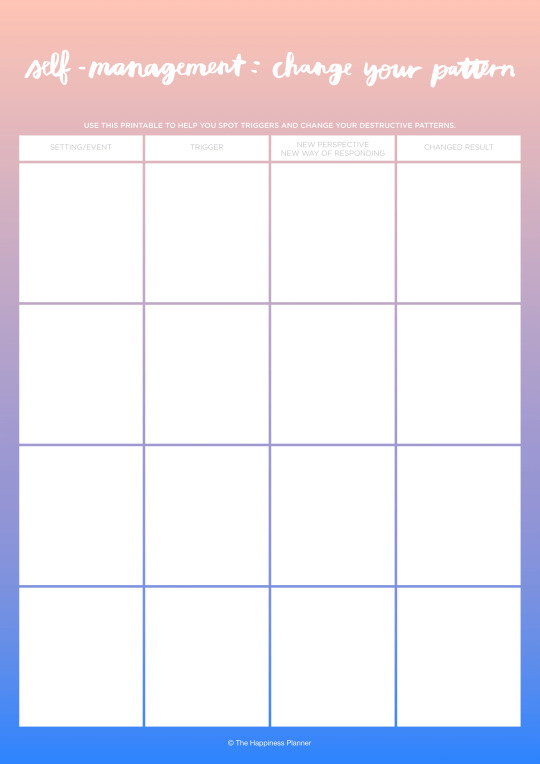
| Free printable | Premium printable |
It’s not easy to break patterns that we’ve been living for years. However, every time you choose to reinforce the new pattern, the old pattern gets weaker. Keep doing this until the new pattern wins the race.
Until you make the unconscious conscious, it will direct your life and you will call it fate.
- Carl Jung
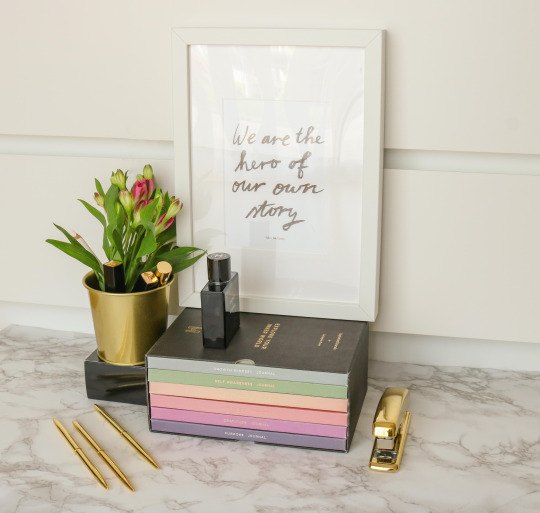
#self-management#learning to manage our worst selves#dealing with our darkness#anger management#triggers anger#mo seetubtim#shadow work worksheets#dealing with our dark side#featured
83 notes
·
View notes
Text
I'm Breaking Up With You
{ Warning: This post might be triggering }

Have you ever been in a long-term relationship with something that isn’t good for you? But somehow you stick with it and keep going back to it because it’s the only thing you know to have been able to help you feel better when you were at a low point in your life; when you were depressed; when you were sad; when you were unhappy.
Somehow this thing you started becoming acquainted with became your best friend over the years. It’s your muse, your escape, your cave, and your sanctuary. It makes you feel safe and comforted. Yet, at the same time, you know that it’s not good for your health. You’re wasting your health away. You’re wasting money. You’re wasting time and energy. You’re sabotaging not just yourself but also relationships in your life because of your emotional attachment to your bad habit. But because you’ve been reliant on it for so long to help you feel better throughout the ups and downs of life, you don’t know how to cut ties. You don’t know how to break up with it. You don’t know how to say goodbye.
Goodbye is hard especially a forever goodbye with something you’ve been emotionally attached to for so many years. And whatever it is that you resort to to feel better, maybe this past year has been a wake-up call for you to take a look at your life and how you choose to manage your emotions. And maybe, just like me and many other people out there, you realize that you will be complete if you can just permanently cut your bad habit out of your life; if you can permanently change this bad habit; if you can permanently remove your cravings and yearnings for the comfort from what is not good for you.
Here’s the thing - when you realize that you are now an adult and you can be a happier person by eliminating what used to help you feel happier, you’re about to have a breakthrough. When your willpower and determination to change are stronger than your desire to keep relying on something that’s not good for you; when you have done the inner work to heal from past wounds and realize that this is the only thing left that is still holding you back from reaching your full potential, you are ready to successfully transition into the new you. You are ready to find your new source of happiness. And you know that true happiness will arrive when you take back control of your life.
Are you ready to break up with your bad habit? If you are, follow along...
1. Write a breakup letter
Imagine that this bad habit that you’ve been relying on for so many years is a long-term partner or best friend that you need to let go of. Literally, the emotional pain will be similar.
Example,
“Dear _______________
I think it’s time we break up. Thank you so much for helping me through the years and being by my side. Our relationship and codependency have become toxic. I think it’s best we stop being each other’s emotional comfort. My life will be better off without you. I will be healthier. I will save my money and my time. I realized that you have been blocking me from reaching my full potential. I used to always resort to you whenever I feel down. But you’re not healthy for me. This needs to change. And I am so ready for this change. I am going to let you go, for good. I’m sorry to say goodbye. Please take care of yourself.”
2. Find new activities to fill the time with
Those hours that you used to spend on your bad habit, you now have to spend it elsewhere. The first struggle will be how to change your thought patterns from thinking about your bad habit to not thinking about it. How can you spend the hours you used to spend on your bad habit on something else? Something that is healthier and better for you - the ‘you' that you’ve dreamed of becoming or being. And now you’re on track to become that person for real - it’s no longer a fantasy or a wish.
What you replace the hours with needs to be engaging. It has to be something that can get you into the flow state that you forget about your bad habit. It has to be something that you truly enjoy, can focus on, and get lost in. It has to be something that gives you inner peace, contentment, and joy. Because if not, you will keep missing your bad habit. You will keep yearning for its comfort it used to give you even though you know it’s bad for you.
Now write a list of things you can fill up your time, thoughts, and energy with.
a. ____________
b. ____________
c. ____________
These will go into your daily schedule & to-dos.
3. Start doing these things regular that they become a habit
Initially, there will be times that you still keep thinking about your bad habit. So you have to force yourself to spend time with your new activities until you stop missing your bad habit - until you successfully rewire your thought patterns and stop having cravings.
Putting in the time and creating schedules for your new habits. Block out your free time where you used to spend on your bad habit with your new habits.
4. Create an environment where you won’t be reminded of your bad habit
Sometimes being in the same old environment, we can get easily triggered. We just fall into the traps of engaging in our old habits - subconsciously. Because, hey, we are creatures of comfort, and old habits provide us comfort, no matter how bad they may be. Changing our environment and our surroundings can help us break free.
So how can you be in a new environment where you can form new habits that help your brains recognize and start memorizing that you create new routines, thought, emotional, and behavioral patterns?
5. Remind yourself of your goals - the why - the reasons you want to be the new you
The only reason and the only thing that can really drive this change is you and your desire to change. No matter how much someone tells you your bad habit is toxic and unhealthy for you, if you don’t have the desire to change yet, you won’t ever succeed in letting go of it. But here you are, ready to make that change and cut off cold turkey whatever has been holding you back for so many years.
Close your eyes for a couple of minutes and visualize the new life:
What would your life be like without this bad habit?
What would you be able to do and achieve without this bad habit?
How much more time would you have to spend on other things without this bad habit?
How much money would you have left without this bad habit?
How much healthier you’d be without this bad habit?
And how would the factors listed above enable you to create and live the life you’ve been dreaming of living?
Every day, for a few minutes, before you start your day, I want you to set your intention right. Start with the mindset that you’re going to do this; you’re going to achieve this; you’re on the path to becoming the new you.
[ Click on the images to download ]
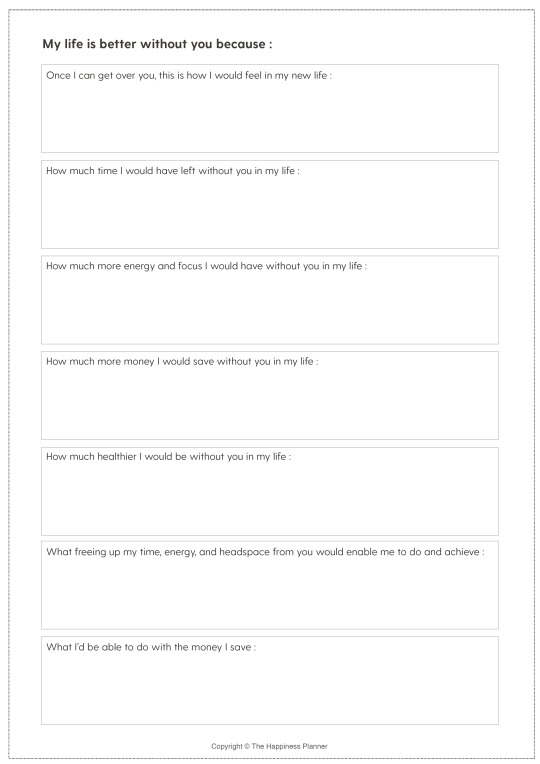
Use these printables to help you create your new life. Stick to this for at least 30 days before you give up. If you miss one day, don’t be discouraged. Just keep on trying.
At the end of the day, it’s all about changing your thought patterns which will then change your emotional and behavioral patterns. If you can shift your thoughts and focus, then you can slowly cut the emotional ties to the old habit. Practice shifting your thoughts and focus until you forget the old habit and start forming emotional attachments to your new habits.
You can do this! 🙂
5 notes
·
View notes
Text
8 Things You Need To Do To Survive Change, Uncertainty, and Difficult Times
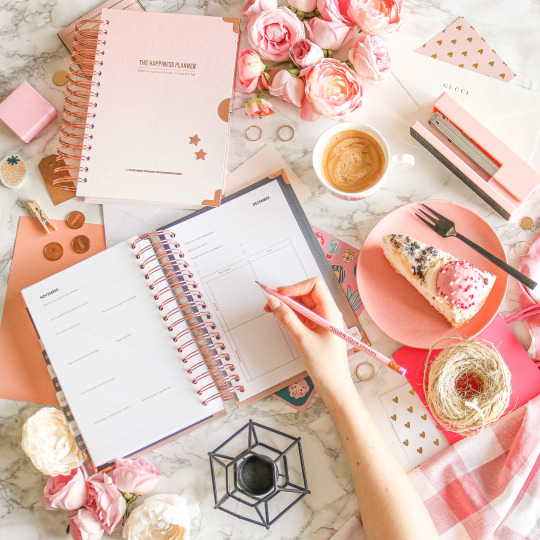
This year has been full of uncertainty and change. And the wheels are still turning. Things are still shifting. We’re still going through the transition.
I hope this blog post can act as a reminder and a guide to help you build your mental strength whether you still feel lost in this transition or if you’ve managed to build a routine and find your way around it.
Here are the 8 things you need to do to survive times of uncertainty:
1. Accept things that are outside of your control.
Focusing on things outside of your control only amplifies your anxiety. ACCEPT that things are changing. SURRENDER to life’s unfolding instead of resisting. TRUST that it will be okay and that you will survive because you have the ability to adapt to change.
2. Take full accountability and responsibility for what is within your control.
You can take responsibility for the choices you make in life, for the actions you take, for making the most of each day, for choosing to look at the positives and not the negatives, and for focusing on possibilities instead of fears.
Change is scary because of the unknown and the unfamiliar. But if you focus on the future and new ways of living instead of keeping yourself stuck in the past, you will be able to spot opportunities and take the reins of your future.
The end of one thing is the new beginning of another.
3. See the stress that you face and issues you have to solve as a test for your mental strength.
You can’t grow your mental strength overnight. Nor can you grow it in comfort. And this will not be the last challenge you face in life. Therefore, you must focus on growing your mental strength. Hard times make you stronger which will be beneficial in the long run.
Refrain from seeing yourself as a victim because that will only keep you stuck in anxious thoughts and feelings of helplessness. Do not go down that rabbit hole.
4. Focus on the possibilities and opportunities that come with change instead of the losses.
When we have nothing, we can be anything. It’s only when we lose the old that we can renew and start a new life. When nothing is certain, anything is possible. If the job you had been doing prior to the pandemic wasn’t something that truly aligned with who you are, use this time to look deeper inside yourself and find your gifts. See how you can learn to make money online from your skill sets, knowledge, and passions. Everyone is online now. You have access to the global market that you didn’t have before. What gifts can you offer to the world online? What do you know that others don’t?
5. Use this time to focus on connecting with yourself.
Quarantine and self-isolation is unavoidable at this time. Use this as an opportunity to work on yourself. It is hard to work on ourselves or change sticky habits when there are so many distractions as they require tremendous focus and willpower. Mood swings are quite common when we try to change our habits especially with quitting addictions! Now is the time to shift all of your focus to yourself - or face your demons, I’d say. Read. Write. Meditate. Journal. Create a routine and rituals for the next 30 days to build new habits and make them stick for the rest of your life when all of these is over.
6. Deepen your connections with those you love.
This is the time to focus on the connections that are most meaningful to you. When all the distractions and fun times are taken away, who really matters in your life? What actually would give a purpose to your being? Who can you live without and who can you not live without?
7. Save money.
Staying home must have saved many of you a lot of money especially if you used to splurge money on eating out, drinking, and shopping. Try to save as much as you can now. Maybe you’ve reached a new found understanding that you actually don’t need a lot of things you used to spend so much money on.
8. Focus on your health.
At the end of the day, what truly matters is our health - both mental and physical health. A strong immune system can help you fight through many things. Has this pandemic changed your perspective on health? Maybe you now pay more attention to what you put into your body? Are you now eating more nutrient-rich food and vitamins? Are you now more hygienic? Are you now exercising more? Although it’s hard since gyms are closed, this pandemic is a wakeup call that we really need to take care of our health. With a strong immune system, you’re less likely to catch diseases. And remember, you’re more likely to catch diseases when you vibrate in low frequency which is when you’re stressed, anxious, and worried. Try your best to stay positive. If you’re still struggling, read #1 again. :)

With all those being said, everyone is different. Some people are naturally more flexible than others. Some thrive on change while others thrive on stability. Some are more flexible & spontaneous while others like to have a plan. Some are internally motivated while others are externally motivated. No matter how hard or easy this year has been for you, I hope you have found your way around it and found a new way of life that suits you.
#surviving the pandemic#how to get through difficult times#tips to help you get through difficulties in life#happiness planner#resilience#mo seetubtim#pandemic survival guide
1 note
·
View note
Text
Are You Tired? Me Too.

Are you tired? Me too.
Sometimes I just want to give up.
Then I have to remind myself how many obstacles I’ve pushed myself through and all that I have now is a result of not giving up.
Everything is such a freaking process.
Growth is a process.
Success is a process.
True love is a goddamn long process.
What isn’t a process?
Settling.
Your best self doesn’t want you to give up on it.
Your healing doesn’t want you to give up on it.
Your soul doesn’t want you to give up on it.
Your passions & dreams don’t want you to give up on them.
Your true love doesn’t want you to give up on him/her.
All that is worthwhile takes time.
That’s why it’s worthwhile.
That’s why it’s rare.
Because while 99.99% of people give up, you choose to keep going.
You have to be mindful of when your mind plays tricks on you because of your fear of rejection.
It makes you think that you don’t want that thing anymore and give up. When in fact, it’s your mind trying to protect itself from potentially getting rejected.
Getting rejected is actually you rejecting yourself.
If you can spot this and refrain yourself from “sabotaging the process”, then you can almost win anything in life.
Because winning in life is simply that - stopping yourself from sabotaging success, growth, a relationship.
Because if you don’t self-sabotage, you can pretty much be guaranteed to get to the end.
What did I not give up on?
✅ Wanted to go to school in Australia since I was 12. Successfully moved for university when I was 18.
✅ Wanted to have my own business since I was 15. Successfully started one when I was 27.
✅ Dreamed of traveling the world since I was 10. Wanted to have the freedom to move freely. Have been living the digital nomad life since 2015 (age of 27). 😊
✅ Wanted to have the freedom with my time AND money since as long as I can remember. My mom was strict and very tight with money. I had to do things her way in order to get pocket money. It was suffocating.
I was determined that one day I would be so successful that I don’t have to bend over backwards to ask anyone for money or for freedom to do whatever I want whenever I want however I want. Only I can set the rules for my own life.
Now I have both. Sort of. 🙂 I can work whenever I want wherever I want (though I tend to work all the time lol). I can eat out whenever I want and not have to worry.
✅ Dreamed of becoming a successful writer/author whose books inspire millions of people. I had so much joy writing essays at school. I used to write a novel and passed around to everyone in class to read. Well, I’m half way there. 🙏🏻
✅ I really wanted to be skinny, fit, and firm.
I was a fat kid so I dreamed of being fit. Managed to lose 15kg, but always had issues with weight control. Now in 2020 in quarantine, probably the fittest I’ve ever been. 😆 I’ve not weighed myself in so long and have stabilized my body shape physically and mentally (aka I stopped being obsessed with scale). Yay! 🙂
✅ When I was a kid, I wanted to be able to speak English fluently. Now English feels like a mother tongue to me. 😊
.
What about you? What did you achieve that are the results of not giving up?
Write down a list of accomplishments that happened because you did not give up on them, adding the date when it was just a dream and the date when it became a reality:
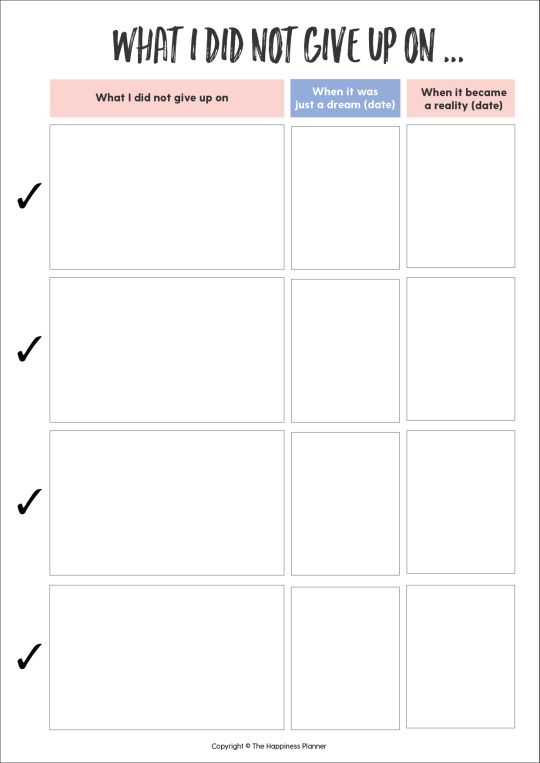
Download this printable
Damn, some of these took 10-20 years, didn’t they?
Although they might look like an overnight success to others.
Every time you feel like giving up, remind yourself that you have experienced this feeling of wanting to give up so many times in this life before.
Yet, you are still here. Do not give up.

0 notes
Text
Turning "Hope” into “Belief"
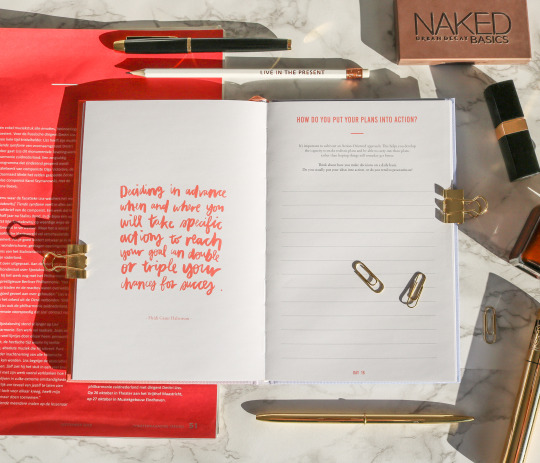
With so much uncertainty that comes with change, today I want to talk about hope and how important it is to have hope. But more importantly, how our hope won’t likely become a reality unless we believe that our hope will come true.
But with so much fear and insecurity, how can we convince ourselves that we are worthy of reserving what we desire? How can we make ourselves believe that what we want can happen and it will happen?
Because everything, everything that happens to us is simply a reflection of our beliefs. If we don’t believe we deserve something, subconsciously we:
Won’t work hard enough to obtain what we desire.
Lower our expectations and start looking for things that fulfill just those.
Accept things that meet our lowered standards.
Reject the thing we want when it’s offered to us because we think it won’t last and we will end up getting hurt or disappointed later on anyway.
And then when things don’t go as we had hoped, we feel convinced: “I was right. So why get my hopes up?” When it’s fact, it’s our own actions and perceptions done on a subconscious level that create the results that aren’t satisfactory.
Your disbelief that your hope can come true affects everything you see. They’re like sunglasses. When you wear them, every sight you turn looks darker.
Your hope will never manifest until you turn your hope into belief. But it is hard to believe when you’re clouded by your insecurities.
Here are some exercises that I would like you to do. These exercises will help you understand the power of turning hope into belief.
What small hopes do you have?
Write down “I hope” sentences. Think about something that you can achieve on your own and see results pretty quickly.
For example,
I hope to be stronger.
I hope to lose 2 kg.
I hope to do public speaking.
Now, these are the little things that you can shift from hope to belief.
Reframe how you see this. Change the words “I hope” to “I believe”:
I believe I can be stronger.
I believe I can lose 2 kg.
I believe I can do public speaking.
See? How does simply changing the word from “hope” to “believe” make you feel?
Hope contains doubts. Hope contains doubts. It is not enough to hope; you MUST believe.
By replacing “hope” with “believe”, you’re removing doubts from your mind.
Now, what bigger things do you hope for?
For example,
I hope to meet the love of my life, get married, and start a family.
I hope to be financially secure.
I hope to own a home in two years’ time.
I hope to start my own business.
I hope to win the competition.
Now, turn your “hopes” into “beliefs” and add determination by using “I am going to”.
I am going to meet the love of my life, get married, and start a family.
I am going to be financially secure.
I am going to own a home in two years’ time.
I am going to start my own business.
I am going to win the competition.
How do these sound?
Words hold power.
Words influence our thoughts and our emotions.
By using powerful words with determination, you are shifting your energy and vibration to a higher level.
Now, what do you "believe" you will get and attract into your life next year?
Write them down on a piece of paper using “I am going to" sentences and put it somewhere that you will see every day e.g. next to your work desk or makeup desk, bathroom door, on the fridge.
Look at this piece of paper and visualize yourself having those things. Feel it. Live it in your imagination and fantasy. Talk to yourself if you must. Do this until your beliefs go into your subconscious mind that you start to subconsciously work towards them.
Because this is how it works.
Things don't fall into place when we try so hard to "control".
Things fall into place when we believe - deep right in our subconscious mind.
Please feel free to download these printables for the exercises.
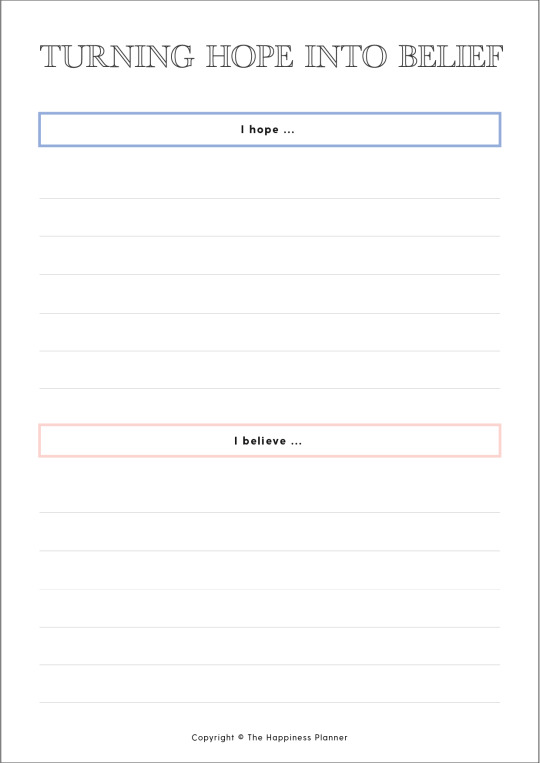
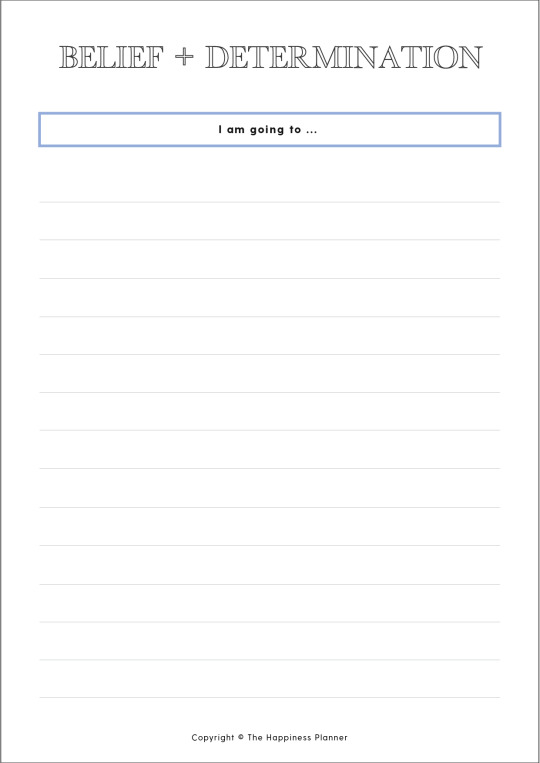
5 notes
·
View notes
Text
Healing Mother-Daughter’s Relationship’s Wound
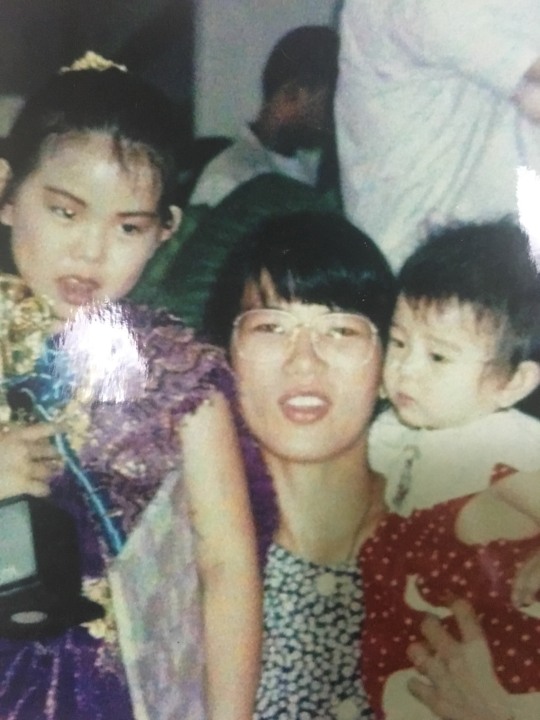
Mother’s Day (in many parts of the world) is exactly 5 days from today. I want to share with you a personal story.
I came back to Thailand, my home country, to get a new visa. Due to the pandemic, I am stuck here until further notice. My initial reaction to the lockdown and the closing of borders was probably like many other people’s. I wished I could continue traveling. I wished I was quarantined with a romantic partner. I wished I could still go out to eat and hit the gym. I initially hated the idea of being stuck at home at my mom’s because I kept reminding myself of past childhood memories where I felt like I was being kept in a cage when I wanted to be a free bird who could be her most authentic self without feeling judged.
Now it’s been over 5 weeks since I moved back to my mom’s. During the first 4 weeks, I kept feeling triggered. I kept feeling annoyed with her little complaints. It reminded me why I didn’t want to live at home and why I wanted to move away so badly.
But now I feel different.
My mom adopted two kids who are now 6 and 11. They are my cousins’ kids. However, my cousins are not responsible adults - kind of broken in their own ways (which I won’t get into). So my mom thinks the kids would be better off if they were in her care. Initially, I didn’t support the idea. I felt like mom was trying to add more responsibilities - especially financial responsibilities - to herself. But now that I’ve been back for a while and start bonding with them, I start to feel attached to them. The kids are really good kids. They even help mom do house chores without complaining. They love helping mom - something that I and my sister never did.
Then it hit me.
It hit me that these kids are happy to help mom with house chores because they feel grateful. They feel grateful that they have a loving home and an adult who loves them like they’re her own. And who am I to not be grateful for my own mother? All I’ve been focusing on is how much she complains about me and is always worried. While my mom has a tendency to focus on her worries instead of her gratitude, I also have a tendency, in regards to my relationship with my mother, to focus on her complaints instead of her love.
Why do I do that? I have the power to change how I feel by simply changing how I look at things. If I focus on her complaints, then I feel annoyed. If I focus on her love, then I feel grateful. Even though her words are exactly the same and maybe we can’t change the way our parents show their love to us, we can change the way we interpret what is being shown to us. The power is in our hands.
You can keep yourself in the past feeling triggered, wounded, and upset holding grudges over someone. Or you can choose to forgive, see the glass half full, and feel thankful that you even have a glass to begin with.
I hope this little personal story inspires you in some way to look at the people in your life differently - not just your parents, but whoever it is that you have in life that may push your buttons from time to time. You can be annoyed by their worries or you can be grateful that someone is even worried about you. The choice is yours.
I hope that this pandemic is giving you a new perspective about something in life, makes you realize what matters and what doesn’t. And if your family’s love is wounded and is still mendable, I hope you get to use this time to heal that wound so that all your deep hidden scars can finally fade away.
8 notes
·
View notes
Text
How To Get Rid Of Your Self-Limiting Beliefs

“It’s not what you say out of your mouth that determines your life, it’s what you whisper to yourself that has the most power!”
- Robert T Kiyosaki
Our beliefs are so powerful that they dictate the direction of our lives. We only see what we believe to be true. We only attract what we believe we deserve to receive. Our beliefs are the lens through which we see the world. Unless we change our beliefs, it is unlikely that our situations will change. Our beliefs have been formed since the day we were born. Our environment, upbringing, education, and experiences have all come together to create who we are today. And just like positive experiences add to who we are, negative experiences tend to create walls within us for protection.
I remember when I was in primary school, I participated in several school competitions from art to math to science. My dad told me that the secret to becoming a winner is to think like a winner. And the winner does not let doubt, particularly self-doubt, enter their mind. I grew up with a great life coach, whom I’m blessed to call ‘dad.’ But even then, I still had a lot of self-limiting beliefs creep in. I had doubts, insecurities, and fears. As I got older, I started pinpointing what those limiting beliefs were and tried to get rid of them one by one.
Telling yourself that one of your beliefs is invalid can feel like you are lying to and robbing yourself. But the fundamental truth is that beliefs are at the core of who we are.
Here are the steps I had to go through each time I worked on removing a self-limiting belief.
1. Identify what your limiting beliefs are.
Identify the beliefs that you want to work on and overcome.
Examples of such beliefs are:
I am not good enough.
I won't ever find love and be in a happy, committed relationship.
I don’t believe I can start my own business and make it succeed.
I want to ask for what I want, but I believe I will be rejected again.
I can never make money from my passion.
I don’t trust the opposite sex.
Life is unfair.
It can be extremely hard and we may feel that it would be very difficult to try to challenge these beliefs. But if you’re reading this now, it means that you realize some of your beliefs are holding you back in life and you want to work through them.
Congratulations! It’s time to make some more progress.
2. Identify the root causes of those beliefs
Now that you know what your limiting beliefs are, it’s time to uncover how these were formed in the first place. Who or what planted the seed within you?
If you often find yourself feeling that you’re not good enough even though no one is saying that to you now, can you identify who in your childhood said that to you? Did your parents or caretakers make you feel like you’re not good enough? Did someone at school say so? What about now? Do you still find that you subconsciously surround yourself with people who think that you’re not good enough?
If you don’t believe that you will ever find love and be in a healthy, loving relationship, is it because you grew up with divorced parents? How did your last relationship end? Are you still hung up on your last relationship? Have you worked through your intimacy and abandonment issues?
If you don’t believe you can start your own business and that you will likely fail, root causes may be that (1) you don’t believe in your own capability. You don’t have enough self-confidence and self-belief. (2) you’ve seen many businesses close to you fail (3) people around you, family and close friends, believe that starting a business and becoming successful is something that one in a million can do.
If you are too scared to ask for what you want because you have been rejected too many times in the past, identify why you got rejected. A lot of times, this has nothing to do with you but to do with them and their criteria. And if it’s in regards to love, remember, people cannot give what they do not have within themselves. A lot of the time, it’s about them and their circumstances in life, not about you.
If you don’t believe that you can make money from your passion, it could be because (1) you don’t believe in yourself (2) you have been told to believe that passions are not to be pursued professionally. This belief could also be passed onto you from your parents because parents oftentimes pass on their beliefs to their children.
If you don’t trust the opposite sex, it could be because you’ve been cheated on before, you grew up with a parent who cheats and witnessed the pain, or you have friends who sleep around so you learn the tricks of the game.
If you believe life is unfair, this could be because you focus on what you don’t have and what you lack rather than being grateful for what you do have. This could be because you compare other people’s front-row highlights to your behind-the-scene lows. This could be because you always focus on the negatives. This pattern likely was formed while growing up. You may have grown up with a caretaker or a parent whose view of the world was negative. Therefore, you started adopting those beliefs and focused on the negatives as well.

3. Challenge your beliefs.
Now you’ve identified your beliefs and the cause of them, it’s time to challenge those beliefs by finding the other side of the argument. Most of the time, we surround ourselves with people with the same beliefs. So our limiting beliefs get reassured and reaffirmed, making us feel that our beliefs are right and that it is the only way to see the world. But this is not true. As you’re reading this, you’ve probably already realized that you have limiting beliefs that are holding you back and you want to get rid of them for good. In order to change your beliefs, you must change your environment. Remember, we are a product of our environment and our brain subconsciously mirrors the people and things we are in closest relation to.
For example:
If you don’t believe that you can start your own business, then start looking at businesses that succeed. Make friends with and talk to entrepreneurs who have started businesses and are successful. Surround yourself with people whose beliefs challenge your own limiting belief as much as you can so that you eventually erase your old belief from your mind and adopt the new belief.
If you don’t trust the opposite sex, then this unconsciously makes you attract the opposite sex who are not to be trusted. Your limiting belief in this area also sets a low standard for what you should and should not accept which does not go with what your heart truly desires. Sometimes we start tricking ourselves as a self-defense mechanism so that we do not get hurt. Trust issues are hard to overcome and I still combat them myself. Fully giving trust to the opposite sex right away can be hard when you’ve been hurt in the past. Challenge this belief by becoming friends with men and women who do not play around and only date one person at a time. By doing this, you will start to see the other side of the coin. Your existing belief will get challenged and slowly you will start changing your belief.
If you don’t believe you can make money from your passion, then start making friends with people who successfully turn their passion into a profitable business. Learn from them. Absorb the good energy from them. See how they do things. Surround yourself with people whose beliefs challenge your old beliefs. This will slowly change your beliefs.
If you believe life is unfair and realize that it’s because you have a pattern of focusing on the negatives, then start by removing yourself from negative people. A lot of the time, we continue to hang out with people with the same beliefs as us because it’s comfortable. But comfort is exactly what’s stopping us from growing and making changes in life. Most of our learnings are unconscious. Hence, we need to be mindful of the environment we put ourselves in. Realize that some old attachments can be let go of if they continue to bring us down. Make room for new connections in your life - those who embody the thought, emotional, and behavioral patterns you want to adopt. If you want to be more positive, surround yourself with positive people. This might feel strange and not comfortable in the beginning. But slowly, you will get to see a new perspective, and you will be able to see the glass half full, rather than half empty. Or even better, you will start being thankful that you even have a glass!
4. Keep a journal for your thoughts & beliefs.
Changing habits is hard. Changing our beliefs is harder. But once we can change a belief, our habit will automatically change. This is because our beliefs lay as a baseline for our thoughts which drive our emotions and actions.
In the beginning, it will feel like you’re forcing yourself to believe in something that you do not believe in at all. Try to forget the old belief. Remind yourself of the good reasons why the new belief is more believable. Surround yourself with people who embody the new belief. Read content that reinforces the new belief.
Journal. Observe and record your thoughts. Pay attention to your inner voice. Observe the little things in life that could help you reinforce the new belief. When voices of self-doubts come up, try shutting them down and canceling those thoughts out. Make your new inner voice louder than your old inner voice through positive affirmations and repetitive visualization.
Slowly, one day, when you successfully adopt the new belief, you will feel like a brand new person. You will even forget that you used to have that old belief and what it felt like to have a belief that held you back for so long.
Our Happiness Planner app now has a voice note feature that is designed to help you practice empowering your own inner voice. All voice files can be downloaded directly to your computer from our web app.

Our Growth Mindset, Self-love, and Confidence Journal are also designed to help you tackle your self-limiting beliefs. Pick the one that is most suitable for your situation.
Remember, it all starts in the mind - and you have the power over that. You just have to keep stretching its limit.
“A mind that is stretched by a new experience can never go back to its old dimensions.”
- Oliver Wendell Holmes, Jr
#happiness planner#the happiness planner#happiness planner blog#mo seetubtim#brandmentalist#self-limiting beliefs#limiting beliefs#how to change your beliefs#how to get rid of your self limiting beliefs#self-improvement
29 notes
·
View notes
Text
Heal The World By Healing Yourself

The best way to make the world a better place is to heal yourself.
Are anyone’s destructive patterns being triggered during quarantine? Do you find that being at home without outside distraction, you’re falling back into your old addiction or whatever it is that gives you emotional comfort?
Or maybe the current situation is forcing you to live with someone who triggers your old destructive patterns?
Whatever it may be, maybe this is the perfect time to, instead of running away from our shadow, face it head-on.
Since we are socially isolated, we can gear all of our energy towards our darkness, digging through the deepest pain we’ve ever felt within our heart which is usually the trauma and experiences that occurred during childhood.
All our destructive patterns were formed as parts of an escape - an emotional escape from something that caused us far greater pain. Pain comes in many forms - from being abused, neglected, to being controlled. The emotional toll it took on us was far greater than the physical pain itself. Subconsciously we tried to find a way to escape. We tried to find emotional relief. We tried to find our happiness.
Sometimes the pain was far too great that even cutting our wrist gave us a relief; that purging gave us a relief; that starving gave us a relief; that eating gave us a relief; that being drunk gave us a relief; that being high on drugs gave us a relief; that doing mischievous things gave us a relief; that sweating so hard to the point where we could barely breathe and our muscles ache so much gave us a relief.
A relief from feeling controlled, abused, ignored, and more importantly hopeless because we were too young to be able to walk away and legally take full control of our lives.
A relief from feeling lonely, abandoned, neglected, and worthless.
A relief from feeling misunderstood, rejected, and not accepted for being who we truly are.
Some of us turned to books and music as a way to escape. Some turned to programming. Some turned to sports. Some turned to food. Some turned to drugs or alcohol.
But whatever it may be, we can all agree that our destructive patterns were formed to help us escape, to help us feel better, to help relieve us from feelings of deep, unbearable pain.
But it was exactly that reliance that came to hurt us. We quickly became attached to things that help relieve us of the pain. The deeper the pain, the stronger our ties to the pain reliever is. The next thing we knew we became addicted to something we shouldn’t be addicted to. It became a way of life. It became a way for us to find happiness because that’s the only way we knew how.
Over the course of our lives, we try to escape from that pain. We learned that our pain reliever wasn’t healthy so we tried to find a healthy alternative. But the stronger the attachment to the pain reliever was, the stronger the attachment to the healthier replacement had to be. So we become addicted to something else, something healthier, but the addictive tendency remains. Because only with the addiction, can you feel more in control of your life. The damage was already done. Wholeness is already lost. You can only patch up the hole, hoping it would never leak again.
Healing is a constant work-in-progress. It is a lifelong commitment and a never-ending journey of pouring self-love & self-acceptance into you.
But can life be interesting without pain?
Can life be fulfilling without having overcome challenges?
Can you be unique without having been rejected for your differences?
Can you be interesting if you’re just like everyone else?
Can you be strong if things have always gone your way?
Would you have ever reached the depth of your soul if you’ve never swum in the deep sea?
Would you have ever transformed if you’ve not hit rock bottom?
Challenges are what make life interesting and overcoming them is what makes life meaningful.
- Joshua J. Marine
Some were put into this world to face more challenges in life because overcoming them and sharing what they learn in the process of overcoming their pain is the purpose of their being.
They were born to put a dent into the Universe.
Here are some questions you can work through during this time:
What pain did you experience so deeply?
What did you do to feel relieved from pain?
When did you start relying on it and become addicted to it?
How can you find your happiness from other sources?
What can you do to avoid triggering the pain by being near the source of pain?
It is impossible to not have scars when we have been deeply hurt. But what we can do as adults on a self-healing journey is to recognize that we now have the power to:
Put up boundaries (aka keep the source of the pain away from us).
Choose the way we respond (pause and choose the way we respond instead of reacting).
Change our perception by understanding where they’re coming from and looking at them from a place of compassion.
Accept that we cannot change others but we can block them out from our mental space.
Love ourselves above all else which includes choosing to be attached to a “healthy” pain reliever.
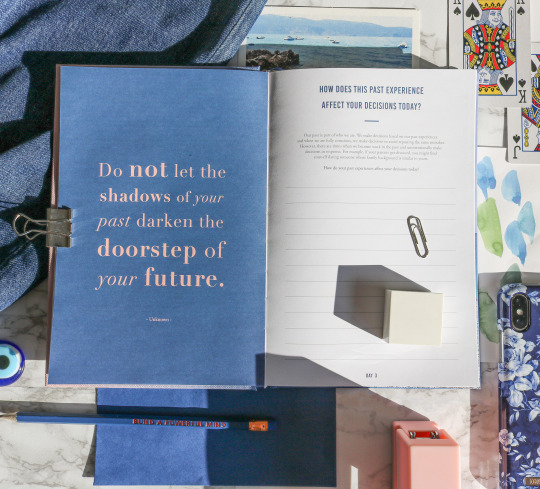
You can also use our Healing Journal to help you work through your past trauma and pain and begin the healing process.
Cheers to never giving up, to understanding yourself, to loving yourself, and to being here & moving forward.
Stay strong. Everything will be okay. And don’t be too hard on yourself. :)
5 notes
·
View notes